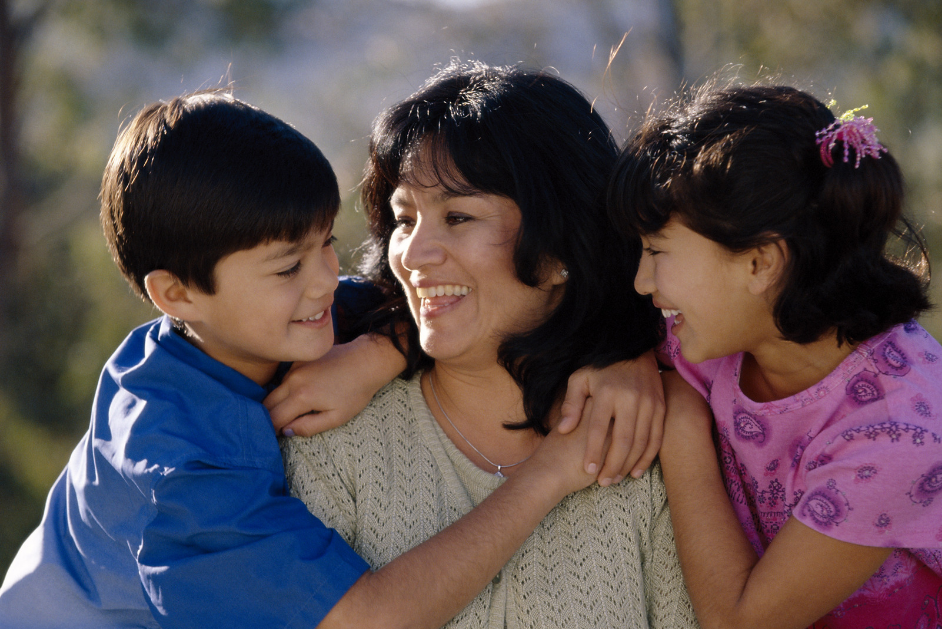When Relative Caregivers Step in to Fill the Gap

When Ms. Williams’ son’s girlfriend dropped off her two children—a son named John and a daughter named Olivia—Ms. Williams didn’t expect it would be for three months. But as time went on, it became clear that the children were likely there to stay. She suddenly found herself responsible for their medical care, schooling, and everything else that goes along with long-term care of children.
Ms. Williams is part of a growing number of grandparents who are left to care for their grandchildren. These grandparents (and other relatives who are raising their family members’ children) are known as “kinship caregivers”. Parents may find themselves unable (or unwilling) to care for their children for a number of reasons, including mental health issues, financial hardship, incarceration, or drug abuse. In some cases, the parents are simply not ready to have children, and do not provide adequate care to their children. In other cases, the parent may be suffering from unhealed past trauma that makes it difficult to care for themselves, let alone young children who are dependent on them for survival.
Ms. Williams is part of a growing number of grandparents who are left to care for their grandchildren in their child’s absence. These grandparents (and other relatives who are raising their family members’ children) are known as “kinship caregivers”.
When Ms. Williams recognized that her son and his girlfriend were not planning on resuming care of the kids, she approached Atlanta Legal Aid to help her in the complicated process of adoption. Initially, Atlanta Legal Aid helped her adopt only her grandson, John. But as time passed after securing the adoption of her grandson, and Olivia was still at Ms. Williams’ house alongside her half-brother, Ms. Williams began to think of the child as one of her own. Now, Ms. Williams is again working with Atlanta Legal Aid, this time through a regular adoption process, so that she can properly care for Olivia.
Many grandparents and relative caregivers informally take over care of children when the children’s parents are out of the picture. However a formal, legal relationship is essential to caring for these children on a long-term basis. Without such a relationship, caregivers find it impossible to get the children healthcare or enroll them in school, which is why legal aid is so important.

While some civil legal matters are relatively straightforward and can be achieved without the help of a lawyer, adoption is not one of those matters. The process is more complicated than simply signing some forms and bringing them to the judge. It usually involves side-matters that also need to be resolved. Without this resolution, it’s difficult for children to find long-term stability in their new family structure. In addition, the process can be costly; paying for a private lawyer’s time, paying adoption fees, and securing the necessary supports all take time and money. At Atlanta Legal Aid, we provide high-quality, free kinship care adoptions to our clients, who could not otherwise afford to adopt these children.

Atlanta Legal Aid is uniquely situated to handle these kinship adoption cases. Because our lawyers who work on these matters have years of experience working on such cases, they’re familiar with the ins and outs of these adoptions and are able to look at the cases holistically. While a lawyer who is unfamiliar with the process might focus solely on the adoption, Atlanta Legal Aid attorneys know that there are many other issues that often need to be addressed. Some of these side issues include getting the children specialized education plans, ensuring both children and caregivers have access to trauma-based care, securing any benefits to which the adopted child is entitled, and many, many other issues.
In addition to meeting the immediate legal needs of our clients, Atlanta Legal Aid attorneys work directly with the Kinship Navigator program in Georgia, which provides additional support to families that are unrelated to their legal issues. We know first hand how important securing the legal relationship is for these families, but that’s only the start of the journey. Often grandparents and other relative caregivers don’t have access to the most-basic resources that they need—like carseats to safely transport the children—and Kinship Navigator programs help with this, amongst a range of other services, like connecting families to trauma-based counseling.
Because our clients live under the poverty line, they also face unique challenges that their higher-income counterparts may not. As any parent knows, raising a child is not cheap. So in addition to the emotional stress of raising a grandchild or other relative (while also potentially dealing with strained relationships between their children and themselves), grandparents have to take on a significant financial stress. Atlanta Legal Aid provides support far beyond the initial adoption, and makes sure that families know what resources are available to them and the children in their care. By increasing awareness of the services available to kinship caregivers, as well as addressing the side-issues that accompany these cases, Atlanta Legal Aid lawyers are able to help stabilize these families long-term.

For more posts in this series related to relative adoptions, visit the following pages: